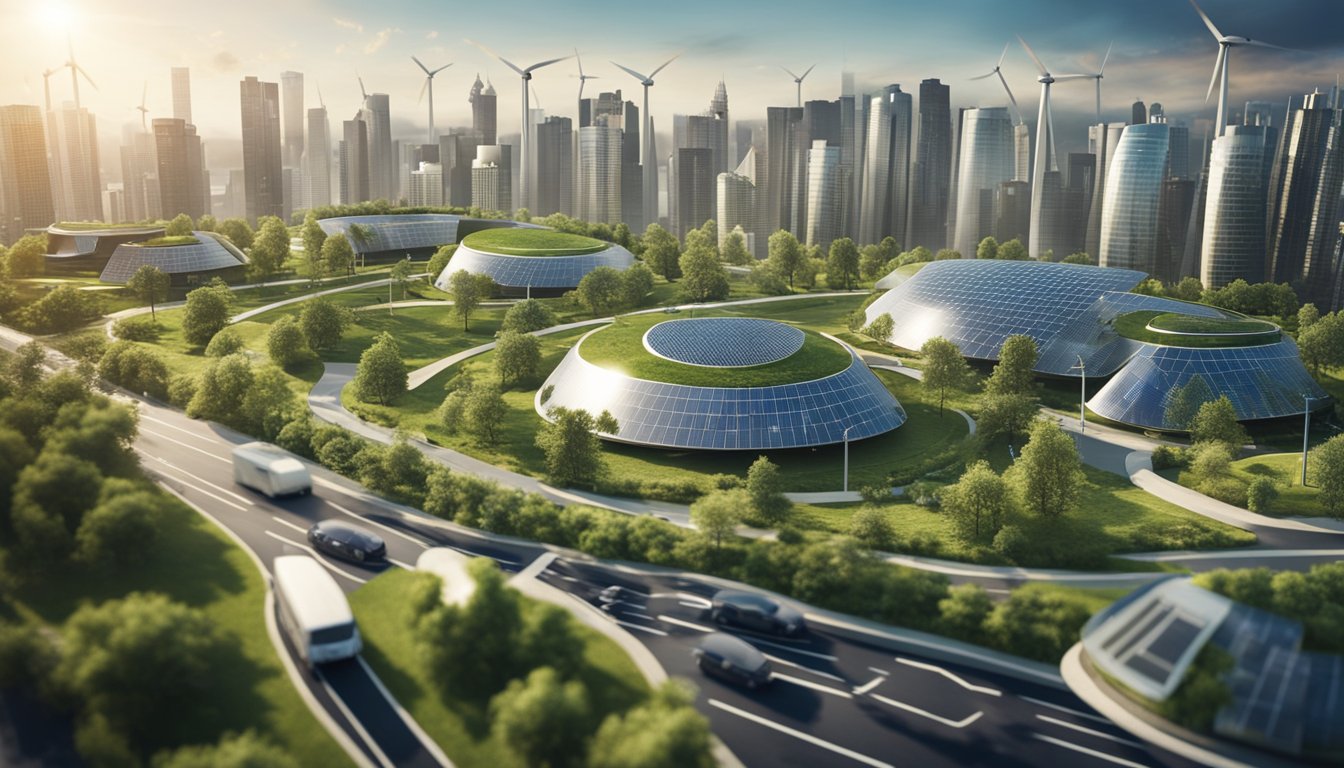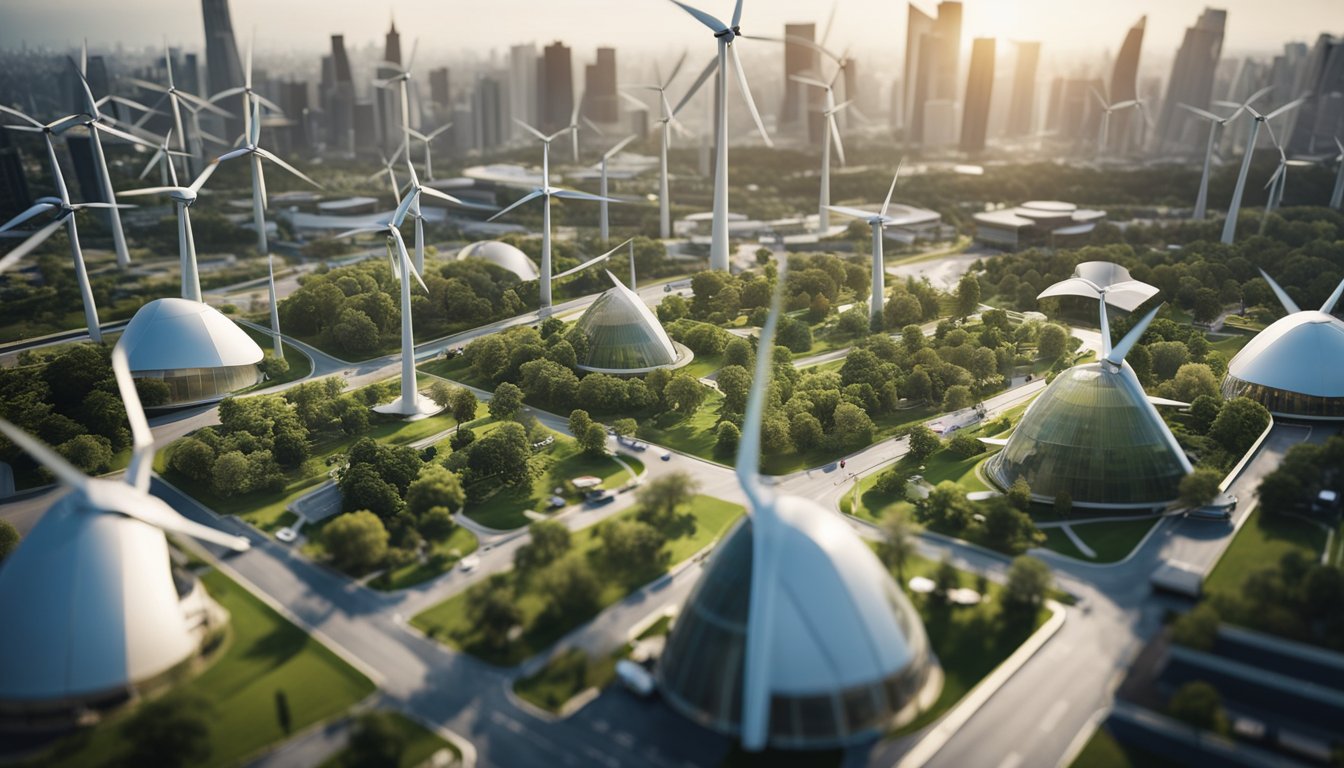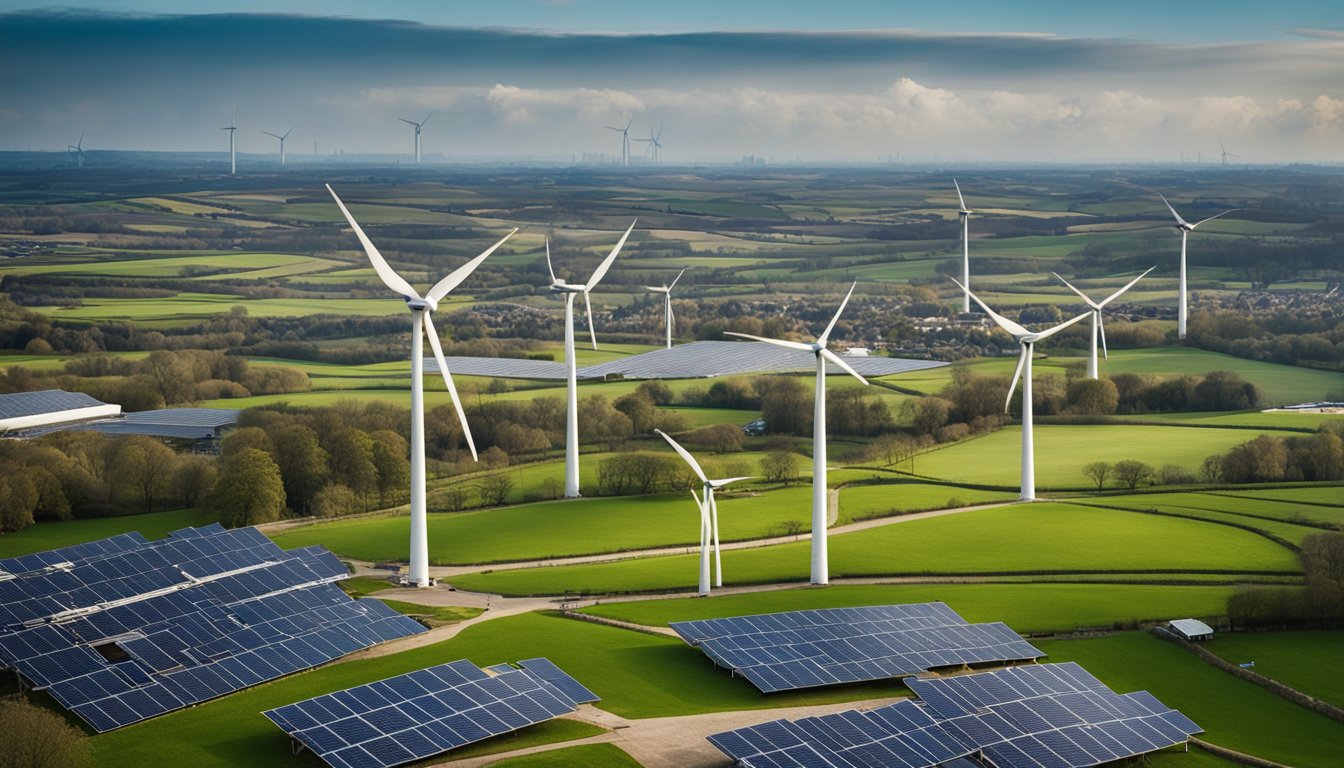Late updated: 07 Feb 2025 10:02
Written by: Eleanor Hartman
Rise Of Urban Renewable Energy Solutions In The UK: Transforming Cityscapes
The rise of urban renewable energy solutions in the UK marks a pivotal shift towards sustainable urban development. With cities housing over half of the population, our energy systems face growing demands as urban populations increase. Innovation in renewable energy is transforming how we power our urban areas, presenting opportunities for economic growth and environmental preservation.

The integration of smart grids and renewable technologies like solar and wind is crucial in ensuring energy efficiency in our cities. These advancements offer a dual benefit: reducing dependency on fossil fuels while supporting city planners in creating resilient energy systems. This movement is driven by the necessity to adapt to changing energy needs and to secure a sustainable future for coming generations.
The rise in renewable initiatives in urban regions reflects a strategy not just for energy security but also for economic stability. Investment in renewable infrastructure is essential for enhancing energy independence, shielding us from volatile global energy markets, and ultimately reducing costs. Our journey in harnessing renewable energy sources will play a vital role in shaping the urban landscapes of tomorrow.
Key Takeaways
- Urban renewable energy initiatives are on the rise in the UK.
- Technological advancements are essential for enhancing energy efficiency.
- Investment in renewables contributes to economic stability and energy security.
Evolution of Urban Renewable Energy in the UK
Urban renewable energy solutions in the UK have seen significant growth due to progressive government initiatives. However, there are also distinct challenges and unique opportunities in urban settings that influence this evolution.
Government Initiatives and Policy Framework
Urban renewable energy in the UK has benefitted greatly from robust government actions aimed at reducing greenhouse gas emissions and promoting net zero targets. The Feed-In Tariff Scheme (FITS), launched in 2010, was crucial in this transformation. It incentivised small-scale renewable energy generation by providing financial returns for individuals and businesses.
Additionally, the UK Renewable Energy Roadmap outlines plans to increase energy security and independence through sustainable energy sources such as solar and wind. These strategies work in tandem with broader climate change objectives, positioning the UK as a leader in the global shift towards urban energy transitions.
Challenges and Opportunities in Urban Settings
Despite progress, urban areas face specific challenges in renewable energy deployment. High population density and existing infrastructures can limit the integration of large-scale renewable systems. Yet, these challenges bring opportunities for innovation in smarter energy systems that efficiently integrate renewables into urban landscapes.
There is potential for socio-technical change as diverse urban initiatives emerge, exploring over 50 potential pathways for energy transformations. Community energy projects offer unique economic models, encouraging grassroots involvement and innovative public engagement strategies. Emphasising these approaches can help transform urban energy consumption to more sustainable patterns.
Technological Advancements and Economic Impacts

Advancements in technology are transforming the landscape of urban renewable energy in the UK. Key areas such as energy storage innovations, integration of renewable sources, and economic impacts are pivotal to this transformation.
Innovations in Energy Storage and Distribution
Energy storage plays a crucial role in balancing supply and demand in urban areas. Smart grids and advanced battery systems enhance reliability by efficiently distributing renewable energy. These technologies accommodate variability in energy production from solar and wind sources. Our integration of district heating networks complements these advancements. As network infrastructure improves, so does the capacity to continuously deliver power, supporting the increased presence of electric vehicles and ensuring greater energy security for urban regions.
Renewable Energy Sources and Infrastructure
Urban energy landscapes are rapidly evolving with renewable sources like solar power, wind energy, and bioenergy taking centre stage. We are investing in both onshore and offshore wind farms, creating a resilient infrastructure that maximises energy production. Furthermore, the growth of biomass initiatives adds diversity and flexibility to energy sources. These changes are reshaping urban energy infrastructures and creating opportunities for distributed generation and grid connection innovations to support this transition.
Economic Benefits and Energy Security
The economic impacts of adopting renewable energy solutions are significant. We benefit from reduced energy prices and increased energy independence, making cities less vulnerable to global energy market fluctuations. By investing in renewables, we are also seeing job creation in tech development and infrastructure maintenance. Regulatory and market reforms support autonomy in energy resource management. This contributes to enhancing our energy security, reducing environmental impact, and ensuring sustainable growth within urban centres.
Frequently Asked Questions

As we explore the rise of urban renewable energy solutions in the UK, we focus on deployment strategies, primary energy sources, recent shifts in the energy mix, and upcoming projects. Government initiatives and emerging market trends also play pivotal roles.
How is the United Kingdom advancing in the deployment of renewable energy within urban areas?
The UK has seen a significant increase in urban renewable energy projects. These include the implementation of smart grids and integration of solar and wind power. Urban infrastructure is adapting to incorporate renewable energy sources, promoting sustainable growth in cities.
What are the primary sources of energy in the UK's current energy mix?
The UK's energy mix includes a substantial portion of renewable energy, nearly half of the total, comprising primarily wind, solar, and biomass. Nuclear and natural gas still contribute significantly but are gradually being supplanted by renewables.
How have the percentages of various energy sources in the UK's energy mix evolved recently?
In recent years, the UK has witnessed a notable increase in the share of renewable energy. The efficiency and capacity of wind and solar power have improved, leading to their expanded role. Meanwhile, the reliance on fossil fuels has decreased, reflecting the nation's commitment to reducing carbon emissions.
What new renewable energy projects are on the horizon in the UK?
Numerous renewable energy projects are on the docket, including offshore wind farms and solar parks. Innovations in energy storage and smart grids are also underway to support these new developments and enhance their efficiency in urban environments.
In what ways is the UK government promoting the use of renewable energy?
The UK government actively supports renewable energy through policies that encourage investment and development. These include subsidies, tax incentives, and funding for research and innovation in renewable technologies. Such initiatives aim to lower carbon emissions and secure energy independence.
What trends are emerging in the UK renewable energy market?
The UK is observing a trend towards decentralised energy solutions and community-owned projects. There is a growing interest in energy efficiency and sustainable technology adoption. Additionally, the focus is shifting towards integrating renewable energy in transportation, heating, and cooling systems to achieve comprehensive energy transformation.